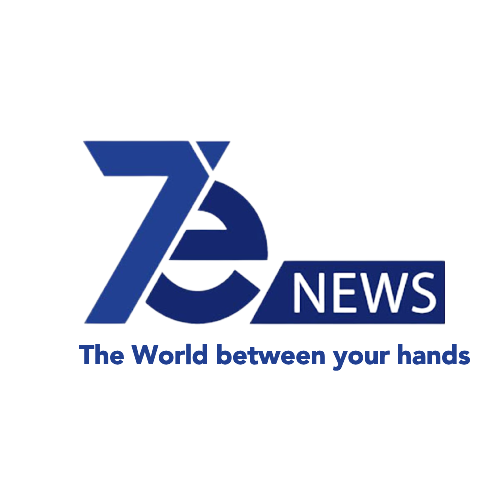Dr. Muhammad Masoud al-Ahbabi
Expert in political and strategic affairs.
On June 8th, the United Arab Emirates participated in the ministerial meeting of the international coalition against ISIS, held in Riyadh and chaired by Saudi Arabia and the United States. The UAE was one of the first countries to join the coalition in September 2014 and played a leading role in the war against the terrorist organization. The main mission of the coalition, which consists of 86 members from countries and international organizations, has evolved from defeating ISIS and achieving its defeat to preventing its resurgence, combating its expansion and brutality in Africa, especially in the Sahel and desert regions, and supporting vulnerable communities in countering extremist ideologies.
The UAE’s regional and international involvement extends beyond the issue of terrorism. It also addresses the issue of extremism, which represents the intellectual foundation of terrorist groups, as well as the rising phenomenon of “political Islam” currents and sectarian groups that fuel extremism in the region. Overall, the Emirati approach in combating terrorism, as outlined by Sheikh Shakhbut bin Nahyan Al Nahyan, Minister of State, during the ministerial meeting of the coalition, focuses on enhancing international multilateral cooperation to counter extremism and effectively confront terrorist activities. It emphasizes promoting tolerance, peacebuilding, and peacekeeping, supporting women’s and children’s rights, amplifying the voices of underrepresented communities, combating bigotry, hate speech, and discrimination. The UAE also positions itself as a platform for countering extremist ideologies in the Arab and Islamic world and promoting its model based on cultural interaction and coexistence among different races and religions within the framework of human tolerance. Consequently, it seeks to assume a normative role in this field.
The UAE’s regional and international involvement extends beyond the issue of terrorism. It also addresses the issue of extremism, which represents the intellectual foundation of terrorist groups, as well as the rising phenomenon of “political Islam” currents and sectarian groups that fuel extremism in the region. Overall, the Emirati approach in combating terrorism, as outlined by Sheikh Shakhboot Nahyan Al Nahyan, Minister of State, during the ministerial meeting of the coalition, focuses on enhancing international multilateral cooperation to counter extremism and effectively confront terrorist activities. It emphasizes promoting tolerance, peacebuilding, and peacekeeping, supporting women’s and children’s rights, amplifying the voices of underrepresented communities, combating bigotry, hate speech, and discrimination. The UAE also positions itself as a platform for countering extremist ideologies in the Arab and Islamic world and promoting its model based on cultural interaction and coexistence among different races and religions within the framework of human tolerance. Consequently, it seeks to assume a normative role in this field.
In addition to its active membership in the international coalition against ISIS, the UAE is a founding member of the Global Counterterrorism Forum since its establishment in New York in 2011. The country has also participated in numerous international events related to counterterrorism. For example, in the year 2023, the UAE is chairing the Counter-Terrorism Committee of the United Nations Security Council with a diverse agenda. This agenda includes leveraging advanced technologies in countering terrorism, establishing international alliances to combat radical narratives, confronting extremist ideologies, criminalizing cyberterrorism, and promoting tolerance.
Consistent with its dynamic approach towards international terrorism and in implementation of the Anti-Terrorism Crime Law, the UAE’s Cabinet issued a list of terrorist groups and organizations worldwide in November 2014, which is updated annually. This reflects the country’s commitment to identifying and combating terrorism on a global scale.
Furthermore, since 2014, the UAE has been hosting the annual “Forum for Promoting Peace in Muslim Societies,” which brings together a select group of Muslim scholars and thinkers from around the world. The forum is led by Sheikh Ahmed Al-Tayeb, the Grand Imam of Al-Azhar, and Sheikh Abdullah bin Bayyah. Its aim is to renew religious discourse and confront extremism and sectarian strife in the Muslim world. One of the significant outcomes of the forum was the establishment of the “Muslim Council of Elders” in Abu Dhabi in July 2014, under the leadership of Sheikh Al-Tayeb and Sheikh ibn Bayyah, with the membership of prominent scholars from various parts of the world. The council aims to promote a culture of peace in Muslim societies, correct misconceptions related to jihad and the issuance of fatwas, and instill values of harmony in the minds of youth.
Abu Dhabi also hosts the “Hedayah” International Center for Training, Dialogue, Research and Cooperation in the fight against violent extremism. It is a unique and internationally renowned center in the field, promoting accuracy and is an interactive online initiative aimed at reclaiming and purifying the cyberspace from extremists and their extremist ideologies. It highlights and disseminates the true values of Islam, based on moderation, centrism, and tolerance. The center serves as a hub for training programs, research initiatives, and international collaborations to enhance global efforts in countering violent extremism.

